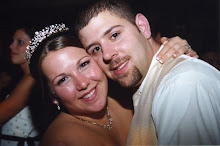This philosophy believes in the personal interpretation of the world. It is based on the view that the individual defines reality, truth and goodness. As a result, schools exist to aid children in knowing themselves and their place in society. Students learn what they want and discuss subjects freely.
CORRECT: Existentialism
This educational philosophy is a philosophy that emphasizes the addressing of social questions and a quest to create a better society and worldwide democracy. Educators focus on a curriculum that highlights social reform as the aim of education. Theodore Brameld (1904-1987) was the founder of this philosophical trend, in reaction against the realities of World War II. He recognized the potential for either human annihilation through technology and human cruelty or the capacity to create a beneficent society using technology and human compassion. Education is considered to be the means of preparing people for creating this new social order, curriculum focuses on student experience and taking social action on real problems, such as violence, hunger, international terrorism, inflation, and inequality. Strategies for dealing with controversial issues (particularly in social studies and literature), inquiry, dialogue, and multiple perspectives are the focus.
CORRECT: Reconstructionism
2 Multiple Choice Questions
believe that there is a common core of knowledge that needs to be transmitted to students in a systematic, disciplined way. The emphasis in this conservative perspective is on intellectual and moral standards that schools should teach. The core of the curriculum is essential knowledge and skills and academic rigor. This philosophy accepts the idea that this core curriculum may change. Schooling should be practical, preparing students to become valuable members of society.
CORRECT: Essentialism
This is a very conservative and inflexible philosophy of education. It is based on the view that reality comes from fundamental fixed truths. It believes that people find truth through reasoning and revelation and that goodness is found in rational thinking.
Essentialism
CORRECT: Perennialism
1 True/False Question
Progressivism → This is a very conservative and inflexible philosophy of education. It is based on the view that reality comes from fundamental fixed truths. It believes that people find truth through reasoning and revelation and that goodness is found in rational thinking.
CORRECT: This is false.
It should be Progressivism → This philosophy believes that education should focus on the whole child, rather than on the content or the teacher. This educational philosophy stresses that students should test ideas by active experimentation, constructing meaning. Learning is rooted in the questions of learners that arise through experiencing the world. It is active, not passive. The learner is a problem solver and thinker who makes meaning through his or her individual experience in the physical and cultural context. The emphasis is on process-how one comes to know. This education philosophy was established in America from the mid 1920s through the mid 1950s. John Dewey was its foremost proponent. One of his tenets was that the school should improve the way of life of our citizens through experiencing freedom and democracy in schools. Shared decision making, planning of teachers with students, student-selected topics are all aspects. Books are tools, rather than authority..
Subscribe to:
Post Comments (Atom)





No comments:
Post a Comment